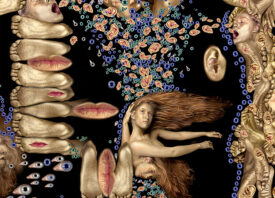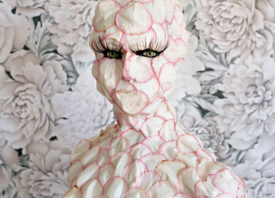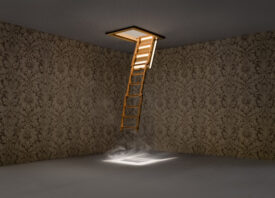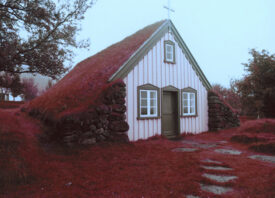Search this site
Surreal Photography Helps An Artist Cope During a Time of Grief

When he was a child, the photographer Bade Fuwa listened to epic legends. One of them was the biblical story of Jacob, who in the Book of Genesis, wrestled with an angel throughout the night. They stopped only at daybreak, and Jacob would not let go until the angel blessed him. The story itself is strange and mysterious, as is Fuwa’s surreal photography.
In the bible story, it’s unclear whether Jacob dreamed the whole thing or if it actually happened, but he leaves the encounter with an injured hip where the angel touched him. Fuwa, who grew up praying and studying in Sunday school, has returned to angels and other supernatural themes throughout his work, building upon ancient stories to create new ones.
Based in Lagos, Nigeria, the artist finds locations for these mythic tableaux while out and about in daily life. It could be an abandoned, lonely house that everyone else overlooks or a vast, open landscape by the sea. As a rule, though, he never uses the same location twice.
From there, he brings his models together. He’s most drawn to people’s eyes, and in some cases, the entire scene revolves around the model’s gaze. “I’m captured by the eyes—as though I can see into the soul,” he explains. “It’s eyes, eyes, eyes for me.” Each of the final images, created in-camera and in post-production, can take about a week or two to realize.
Fuwa’s work is informed, in part, by his own life. A few years ago, he experienced paralysis as a result of an injury. “I was paralyzed for about a year,” he says. His mother took care of him throughout his time in physical therapy, and ultimately, he was able to walk again. A few months after his recovery, however, his mother passed away.
Following the death of his mother, the artist experienced all-consuming grief. Longing for someone to blame, he, like Jacob, wrestled with God. “I really could have cried myself to death,” he says. “It’s a pain I’ll have to live with.” What he couldn’t express in words he brought to life in photographs. At the same time, photography became an outlet for and an escape from that grief.
The driving force behind much of Fuwa’s work and surreal photography since then has been defined by what he calls a “searching for unconditional love”—or a searching for his mother, wherever she might be. “Since I found photography, I know I can never let it go,” he tells me. “Through photography, I’ve found a kind of calm that nothing has given me before. It’s more than photography to me; it’s my life. It’s almost like something my mother sent to me.”









All images © Bade Fuwa
For more surreal photography, check out the work of Tony Nahra, Aaron Ricketts, and Ben Zank.



